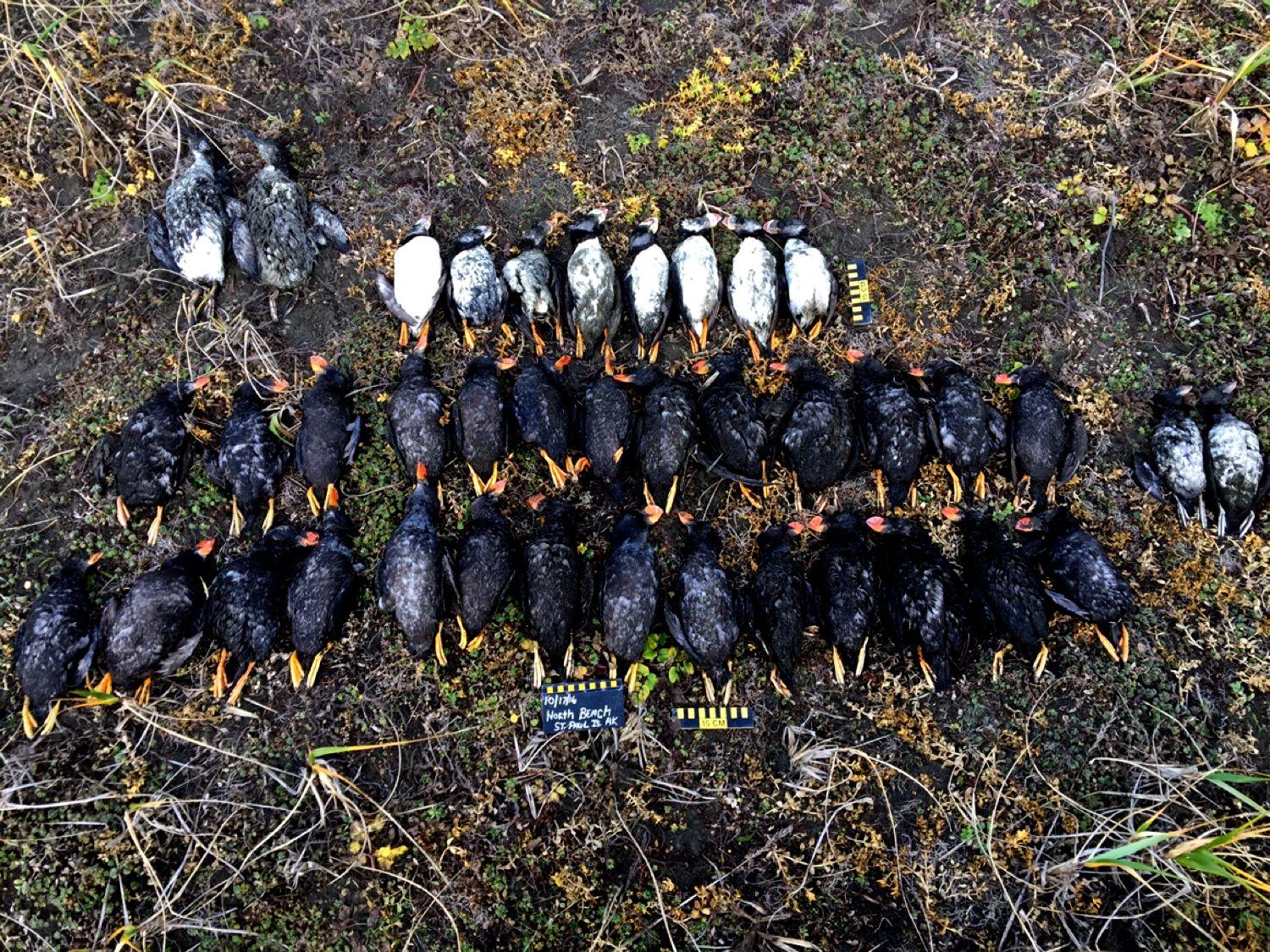
What caused more than 300 puffins to wash up dead in the Pribilof Islands last fall? Starvation?
One ecologist thinks there may be another factor: Paralytic Shellfish Poisoning (PSP). That’s what Bruce Wright thinks killed the prey of these puffins and thousands of common murres in 2015. Wright is an ecologist with the Aleutian Pribilof Islands Association (APIA), and he knows he’s mostly on his own with this theory.
“My colleagues are reluctant to say the things that I am saying because most scientists feel like they have to have rock-solid data in their hands to draw these conclusions,” Wright said.
Even without hard facts, Wright feels comfortable saying PSP is involved because a professor trained him to approach science this way.
“Your job is to make predictions based on your best judgement and the data you have,” Wright said. “You’re not going to be right all the time, but somebody’s got to tell the managers that look, this could be what’s coming down the pipe. We need to plan ahead.”
Warmer oceans promote the growth of toxic algal blooms. As animals along the food web consume them, they can die. Big algal blooms were documented before both of these die-offs and that’s why Wright thinks PSP is a player.
Because the toxins disappear quickly, he admits his hypothesis is more speculation than hard proof.
Lauren Divine is co-director of St. Paul’s Ecosystem Conservation Office. She agrees with Wright to a point. She says PSP could be a part of the picture, but not the whole picture.
For her the most important takeaway is that the puffins died of starvation.
“Whether they missed a cue, or they were in the wrong place, or they were in the right place but the food wasn’t in the right place — is a total mystery,” Divine said.
At this point, Divine said bird carcasses have stopped washing ashore in the Pribilofs. While her team is still on the lookout for dead puffins, they’re shifting gears to writing a paper on the die-off. Plus, they’ve refined their technical skills so they are better prepared to respond to the next event.
“We know why it’s important to collect those carcasses,” Divine said. “We know how to actually [perform] necropsy on island and go through the steps of doing that preliminary determination of the cause of death ourselves.”
Divine believes the big die-off has made other coastal communities more aware that they need to be looking for changes in their environment.
For Bruce Wright, linking PSP to the die-off events is important because the toxins have the potential to transform ecosystems like the Aleutians. And he said PSP does not bode well for the health of the Bering Sea.
“It’s not to say that there won’t be something out there to catch, but it might be different than what we are catching now,” Wright said.
Recently tested samples from the Pribilofs show the highest recorded PSP event happened last summer — before the Puffin die-off. Wright said that alone should make people nervous about the future.
Even though fishing in the Bering Sea is a multi-billion dollar industry, Wright said there isn’t much money going into research that could help confirm or disprove his hypothesis.
Update: An earlier version of this story suggested that Bruce Wright believed PSP killed puffins and common murres in 2015. In fact, Wright believes that the birds’ prey was killed by PSP and that caused the birds to starve. The story has been updated to reflect the correct information.
Zoe Sobel is a reporter with Alaska's Energy Desk based in Unalaska. As a high schooler in Portland, Maine, Zoë Sobel got her first taste of public radio at NPR’s easternmost station. From there, she moved to Boston where she studied at Wellesley College and worked at WBUR, covering sports for Only A Game and the trial of convicted Boston Marathon bomber Dzhokhar Tsarnaev.




